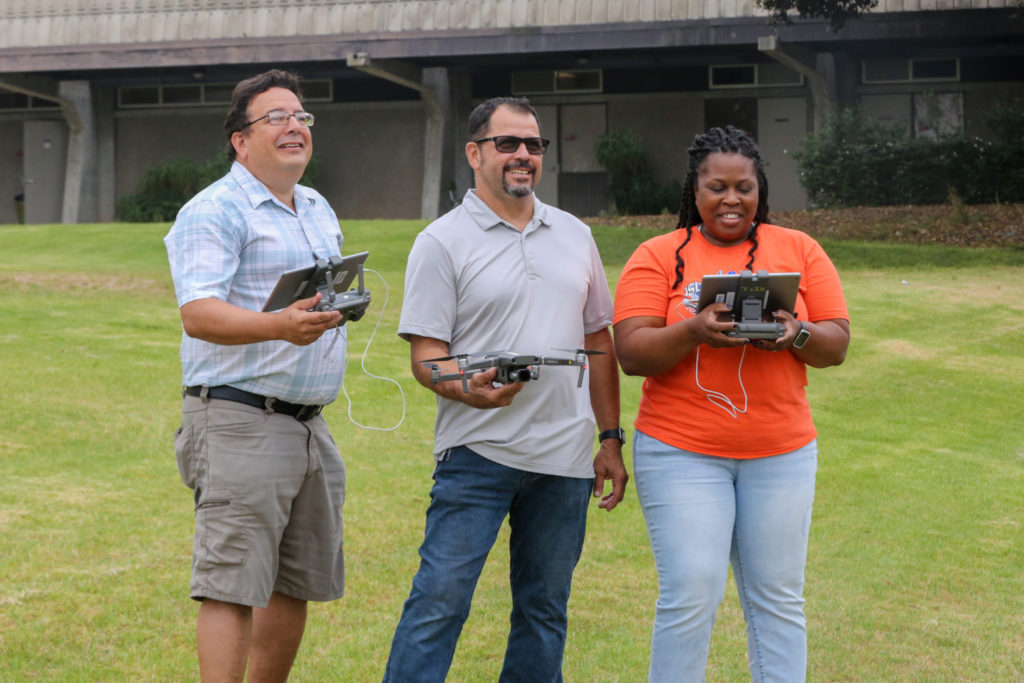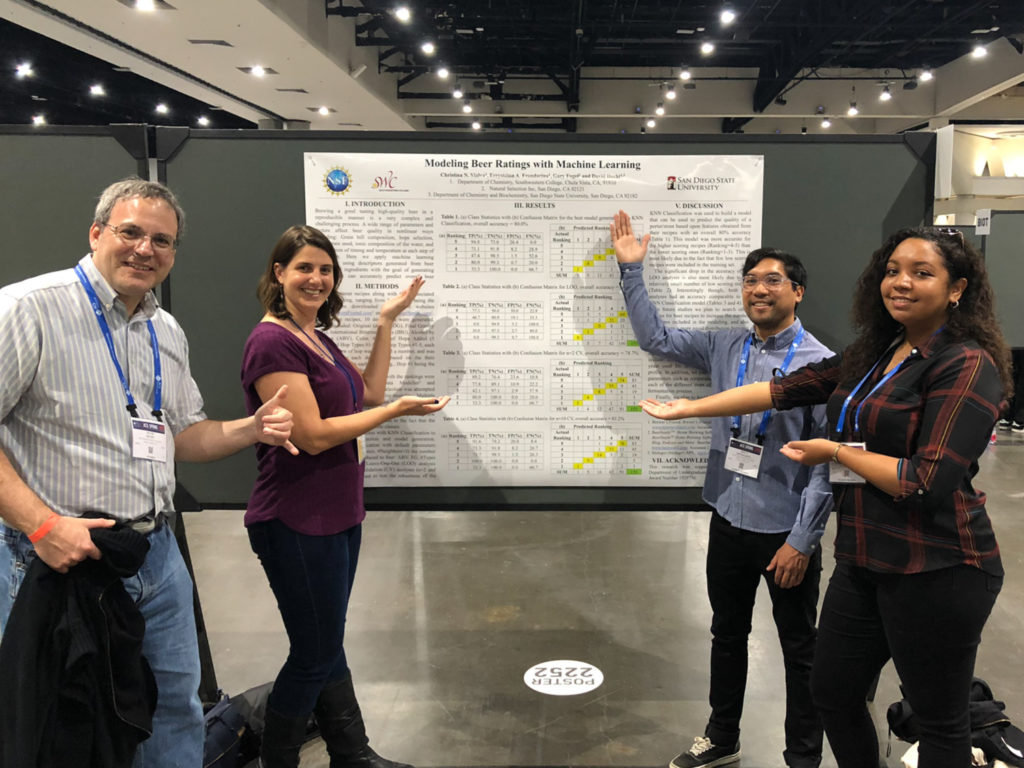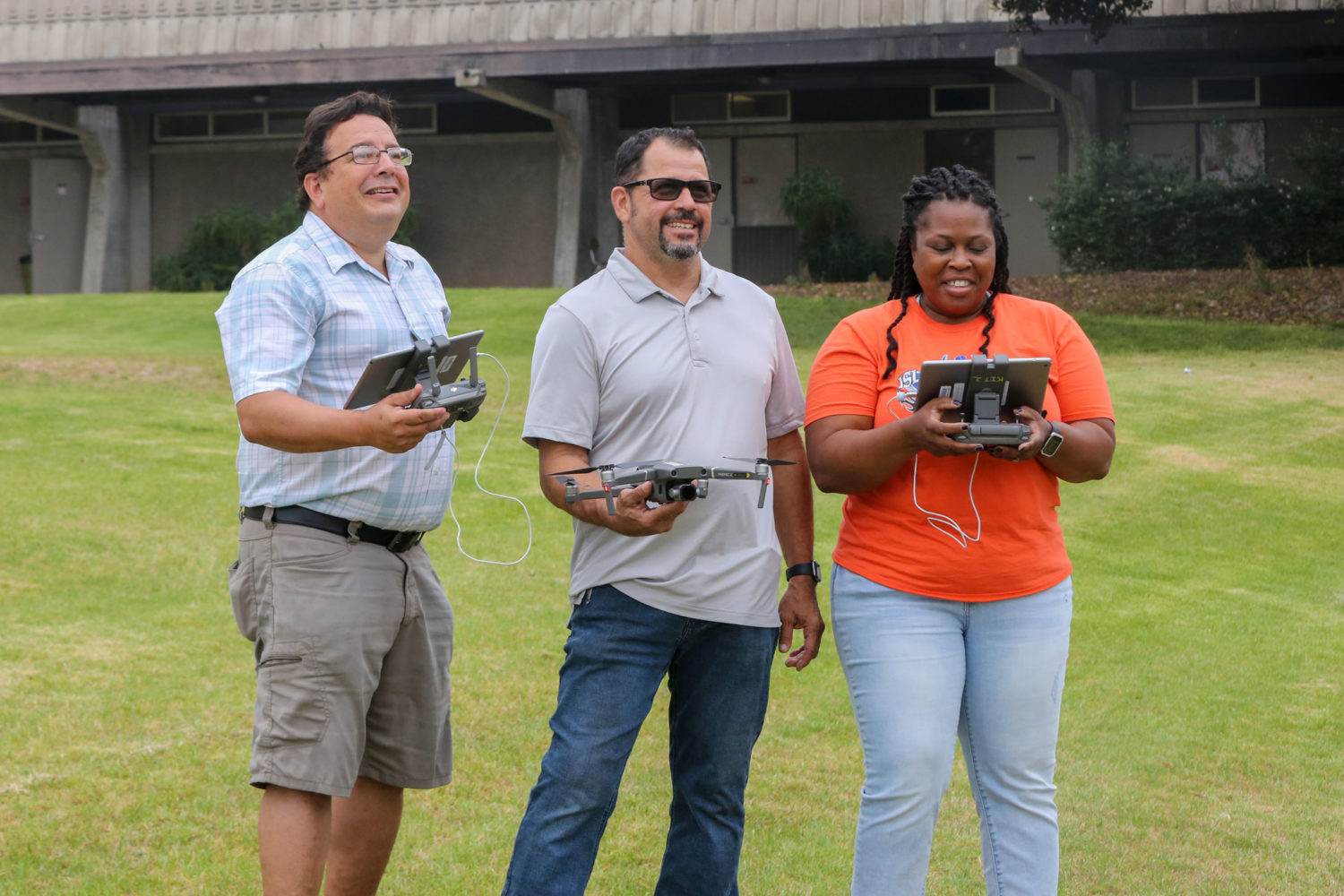
Southwestern College has been awarded more than $6.8 million in grants from the National Science Foundation that, together, will help Southwestern College’s students enter the fields of STEM and drone technology, create transfer partnerships with top universities, improve equity and success rates in mathematics, create advanced certificate training for veterans and award scholarships to low-income students.
The six National Science Foundation grants are:
- Mentored Pathways from Community College to Graduate School and Chemistry Careers ($3,230,840)
- Math Persistence Through Inquiry and Equity ($1,016,000)
- ALRISE Alliance – Accelerating Latino Representation in STEM Education ($667,000)
- Advanced Technical Education, drone applications ($649,956)
- Advanced Technical Education, veteran training ($273,591)
- Scholarships in Science, Technology, Engineering, and Mathematics ($1,032,315)
“These grants from the National Science Foundation show the caliber of STEM excellence at Southwestern College and the tremendous research and work being conducted by our faculty,” said Superintendent/President Dr. Mark Sanchez. “These grants will create more pathways for our students to career opportunities in the region, STEM professionals of color, train future equity-minded professors, strengthen our transfer pathways and provide tremendous opportunities for the entire South County region of San Diego.”
Creating Career Opportunities
The Advanced Technical Education grant awards Southwestern College more than $600,000 to the School of Math, Science and Engineering with the mission to strengthen the educational opportunities and career pathways in drone technology and applications for Southwestern College students. The grant will help prepare students to enter the growing drone industry in the region and help meet the demand for trained drone pilots and operators.
“It’s always important for Southwestern College to stay a leader in programs and cutting-edge fields,” said Professor of Geographical Sciences Ken Yanow. “We are the principal center of higher education in South Bay, and we serve thousands of students. Drone technology, and its related applications, is a growing and rapidly changing field. In order for SWC to offer this type of program for our community, acquiring these types of grants is extraordinarily important.”
These types of National Science Foundation grants help support students like Fernando Camarena, Cynthia Marron and Ignacio Yanez-O’Hara. Each one of them enrolled in the Continuing Education department’s free drone technology certificate and now work as teaching assistants for the college’s drone technology program, co-taught by Yanow and Photography Professor Micajah Truitt.
“If you want to fly a drone, this program is a very good idea because they’ll teach you to do it right,” said Yanez-O’Hara, who is a small business owner and realtor who enrolled in the class to take drone photographs of his properties. “I wanted to do more continuing education and I wanted to learn new skills. I’m a realtor and drones are the present so I wanted to learn more and do my own drone commercial photography.”
Southwestern College’s Continuing Education department helps support the region’s workforce through free or low-cost career training. Camarena, Marron and Yanez-O’Hara each finished the drone certification program with their Federal Aviation Administration remote pilot certification, which allows them to fly the drones commercially and in some restricted zones.
“I have been flying drones for many years and I decided to take it to the next step and to take this more seriously,” said Camarena, a retired UPS driver who is now studying drone applications in agriculture, specifically Mexican farming. “Using drones in farming, farmers can first of all save money and help monitor their crops, but it can also help save the environment. Using drones instead of aircrafts means chemicals from airplanes won’t pollute the crops, our food, or nearby water.”
The grant will be used to develop new curriculum, purchase new equipment, professional development and help provide stipends for more student works and teaching assistants. Marron enrolled in the program to join her husband’s small business as a contractor who inspects power lines with drones for electricity companies in California. After a semester, Marron finished the program, which consists of two classes, and got her 107 certification.
“Ken and Micajah both love what they do and you can see the passion in their teaching,” she said. “They make you excited about what you are doing. Now as a teaching assistant, I get to help the next group of students and I get to continue to learn.”
Strengthening STEM Pathways

Southwestern College’s Mentored Pathway Program provides a supported pathway for STEM students in the region to transfer to a four-year, explore graduate programs and enter STEM careers. Students in the program receive scholarships, personalized mentoring by Southwestern College faculty and workshops designed to enhance their STEM experience.
Professor of Chemistry David Hecht is the principal investigator for the Mentored Pathways from Community College to Graduate School and Chemistry Careers. The grant awarded more than $3.2 million to support the Mentored Pathways Program’s third year at Southwestern College and will continue to support scholarships and research internships for Southwestern College students.
“As of this semester, we have awarded approximately $800,000 in scholarships to over 100 students,” Hecht said. “Thirty three students have been selected for highly competitive research internships, and 38 students have transferred to various institutions, including San Diego State University, UC San Diego and UC Berkeley.”
The Mentored Pathways program is currently accepting applications through Nov. 30. Apply at https://tinyurl.com/mentoredpathways.
Closing Equity Gaps
The National Science Foundation awarded $667,000 to the School of Math, Science and Engineering through a sub-award with Arizona State University for the ALRISE Alliance – Accelerating Latino Representation in STEM Education grant. Mourad Mjahed, MESA (Mathematics, Engineering, Science Achievement) Program director and principal investigator, said the grant will directly benefit students through internships, project-based learning and career pathways.
Another grant closing equity gaps is the Math Persistence Through Inquiry and Equity (mPIE) that aims to improve persistence in gateway math classes through equity-based teaching practices. The grant of more than $1 million will be used to conduct educational research in math gateway classes (classes that prepare you for advanced STEM classes) and provide professional development to math instructors with the goal of improving student persistence and success rates.
Alexandra Hofler, chemistry professor, is one of the principal investigators and said the mPIE program will provide faculty with the tools to upgrade their teaching practices, creating more dynamic and equitable classrooms.
“Teaching chemistry at different schools across the county, I have seen first-hand the disparity in grades, retention and transfer rate due to socio-economic differences,” Hofler said. “STEM courses are already notorious for their difficulty. The additional barriers many of our students face means we are losing talented students every day.”
The remaining two grants will be used to provide career training to veterans and help them receive advanced certifications in the electronics manufacturing sector and will help fund scholarships for engineering students in the School of Math, Science and Engineering.






